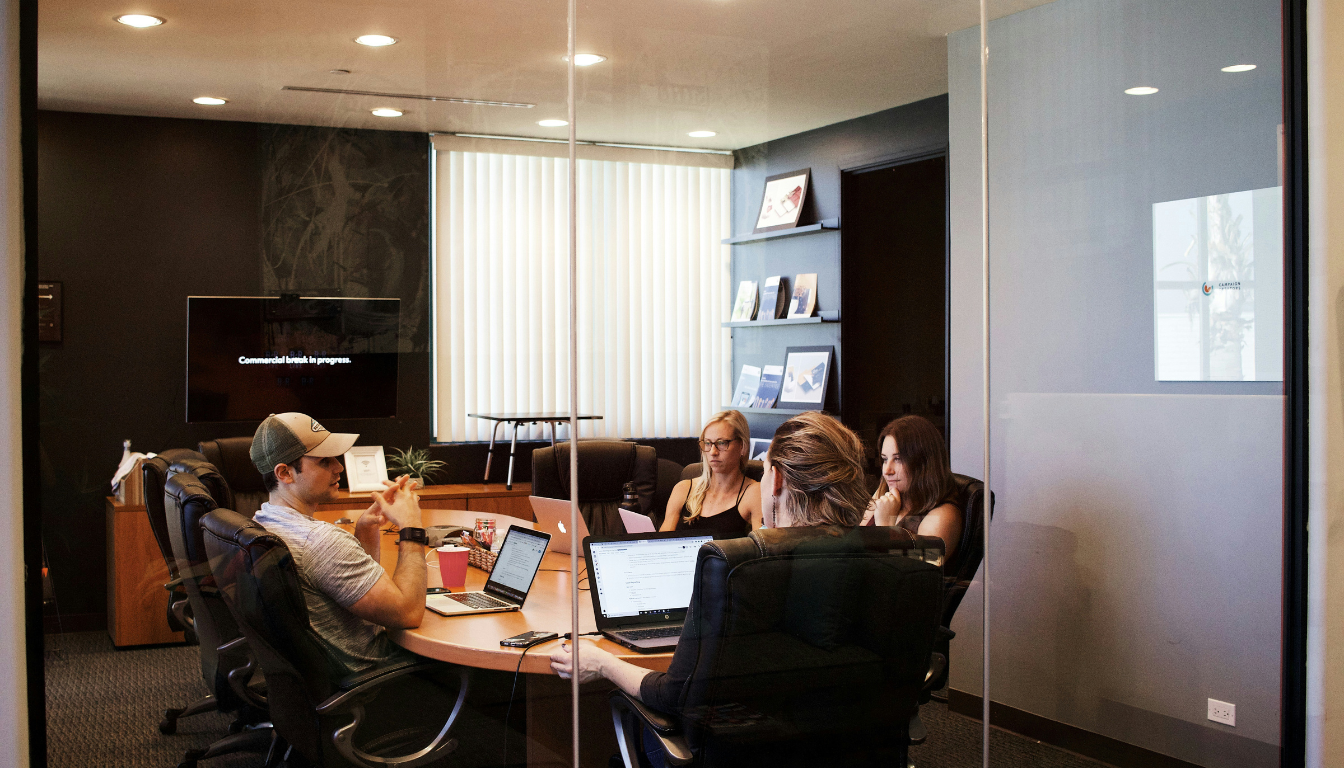The Best Team Offsites: Planning Tips and Benefits Explained

Curious about planning a team offsite that truly makes a difference? Team offsites enhance alignment, foster creativity, and boost morale. This guide covers the benefits of team offsites and provides practical planning tips to ensure your event is successful and impactful.
Key Takeaways
- Team offsites enhance team culture by fostering alignment, creativity, and trust, ultimately boosting performance.
- Successful offsite planning requires clear objectives, the right venue, and a balanced agenda to achieve desired outcomes.
- Effective follow-up after offsite meetings is critical for implementing insights and maintaining momentum towards team goals.
The Importance of Team Offsites

A successful team offsite can be a game-changer for any organization. These events foster alignment, connection, and creativity, which are crucial for a strong team culture. Stepping away from the regular office environment allows teams to engage in activities that enhance trust, communication, and accountability. The experiences delivered during offsites improve culture and performance, leading to a more successful team.
Team offsites are powerful tools for fostering team building, enhancing collaboration, and boosting employee morale. They provide an opportunity for teams to step back, reflect, and realign their goals and mission. Creating a dedicated space for deeper collaboration helps teams overcome typical workplace distractions and engage in higher-level thinking, ultimately benefiting the team’s overall performance.
The benefits of team offsites are manifold. They help in building a cohesive team by fostering meaningful connections and encouraging open dialogue. Whether it’s a team retreat focused on strategic planning or a fun-filled event designed to boost morale, a well-planned offsite meeting can transform team dynamics and enhance overall performance.
Enhancing Team Dialogue and Collaboration
Offsite meetings create a unique room that encourages open dialogue and the sharing of ideas. Removing typical workplace distractions during these meetings promotes higher-level thinking and allows team members to focus on collaboration. Utilizing a space specifically designed for meetings enhances productivity and fosters meaningful connections among team members.
Interactive elements during team offsites, such as engaging simulations and diverse sessions, facilitate active participation and discussion on challenges and opportunities. Leaders play a crucial role in these meetings by actively participating and modeling desired behaviors, which encourages engagement and collaboration among team members.
Establishing clear ground rules and facilitating conversations ensure that all voices are heard, helping to break down silos and foster closer connections. Including a mix of activities helps manage emotions and maintain energy levels, making the offsite a more engaging and productive experience for everyone involved.
Boosting Employee Morale and Engagement
Engaging in fun activities during offsite events is essential for boosting employee morale and creating a positive culture at work. Activities like go-kart racing or attending comedy clubs can significantly enhance team spirit and provide a much-needed break from the routine work environment. These experiences help keep employees engaged and connected, ultimately leading to a more cohesive team.
Offsite events also offer opportunities for outdoor activities, such as team building exercises or simply enjoying fresh air, which can substantially improve team spirit. Providing a change of scenery and a break from indoor work environments, offsites boost morale and foster a sense of camaraderie among team members.
Inspiring Creativity and Innovation
Changing environments during offsite meetings can unleash a team’s creativity. Stepping away from the regular office setting encourages teams to explore new perspectives and think outside the box, sparking creativity. These shifts in environment help to reframe problems and inspire new ideas.
Offsite meetings are designed to foster meaningful connections and collaboration, which are essential for innovation. Providing a space for creative activities and discussions stimulates greater creativity and innovation within teams. These sessions not only generate new ideas but also enhance the team’s ability to tackle challenges creatively.
Planning a Successful Team Offsite

Planning a successful team offsite involves more than just choosing a date and location. It requires careful consideration of objectives, venue selection, and agenda crafting to ensure that the event meets the team’s goals and expectations. Whether the focus is on strategic planning, team building, or innovation, a well-planned offsite can deliver significant benefits.
Setting clear objectives and goals is fundamental to aligning the team during the planning process. Choosing the right venue that supports collaboration and is equipped with necessary amenities can make a significant difference in the success of the event. Crafting a purposeful agenda that balances work-related tasks and relaxation opportunities ensures that the offsite is both productive and enjoyable.
Effective logistics, including transportation and accommodation, are essential for maximizing the benefits of the offsite and managing costs. Planning ahead and considering all aspects of the event ensures a smooth and successful team offsite experience.
Setting Clear Objectives and Goals
Articulating clear objectives is crucial for aligning the team during offsite planning. Offsite meetings provide an opportunity to realign the team, restate the mission, and set goals for the future. It is important to involve key people in the planning process to avoid disagreements and ensure that everyone is on the same page.
Typically, asking clients for three goals helps in focusing the planning process and ensuring that the offsite meets its intended purpose. Workshops focused on innovation should prioritize long-term strategic planning and creativity, rather than short-term concerns. This approach helps in achieving strategic alignment among team members.
Choosing the Right Venue
Choosing the right venue is a critical aspect of planning a successful team offsite. Factors to consider include flexibility, layout for collaboration, ambiance, natural light, and access to hotels and dining. A venue that supports collaboration and is equipped with necessary amenities can enhance productivity and make the event more enjoyable for participants.
Comparing travel costs for offsite locations can help determine the most economical options for the event. Utilizing local vendors can lead to cost savings and support the community. By considering these factors, teams can choose a venue that meets their needs and ensures a successful offsite experience at the venues.
Crafting a Purposeful Agenda
A well-balanced agenda is essential for a successful team offsite. It should incorporate both work-related tasks and opportunities for relaxation to ensure that participants remain engaged and energized. Including fun and non-work-related activities during retreats is crucial for relationship building among team members.
Offering a variety of snacks and beverages can significantly enhance participant satisfaction during an offsite. Regular check-ins to monitor progress on tasks help maintain focus and expect important action items from being overlooked for each person.
By crafting a purposeful agenda, teams can ensure a productive and enjoyable offsite experience.
Key Components of a Team Retreat

A successful team retreat comprises several key components that enhance collaboration and connection among employees. Pre-event surveys, facilitators, and activities that foster meaningful connections are essential for a productive and engaging offsite. These components help in building a cohesive team and enhancing overall performance.
Pre-event surveys help capture diverse perspectives and ensure that the retreat meets the needs of all team members. Facilitators play a crucial role in creating a safe space for idea sharing and engagement. Activities like creative projects and team building activities foster meaningful connections and enhance collaboration.
By focusing on these key components, teams can build ensure that their team retreats are successful and deliver the desired outcomes.
Pre-Event Surveys and Preparation
Conducting surveys prior to the event helps in capturing diverse perspectives and understanding team dynamics and expectations. This preparation is crucial for tailoring the offsite activities to meet the needs of all team members and ensuring a successful team retreat.
Tailoring the offsite activities based on survey insights can lead to more engaging and relevant experiences for participants. Understanding team dynamics and expectations beforehand allows organizers to create a more personalized and effective retreat.
Facilitators and Speakers
Facilitators play a key role in creating a successful team offsite by fostering a safe space for team members to share ideas and engage openly. Hiring external facilitators can bring neutrality and diverse perspectives to the offsite, enhancing the overall experience. These facilitators help guide discussions and ensure that the event remains focused on its objectives.
External facilitators also bring a fresh perspective, which can be invaluable in generating new ideas and fostering creativity within the team. Leveraging the expertise of facilitators ensures that offsite meetings are productive and aligned with team goals.
Activities That Foster Meaningful Connections
Engaging in creative activities like painting, pottery, and team mural projects helps foster meaningful connections among team members. These activities allow participants to express themselves and collaborate artistically, enhancing communication and teamwork. Fun icebreaker activities also help team members get to know each other better and create a relaxed atmosphere.
Team building activities outdoors, such as city or beach clean-ups, provide opportunities for teams to work together on philanthropic efforts and connect with the community. Physical personal challenge like group workouts or adventurous activities like ropes course stimulate connection through shared challenges.
Incorporating these activities into the offsite agenda builds stronger bonds and enhances collaboration.
Types of Team Offsites

Team offsites come in various types, each designed to meet specific team needs and challenges. Understanding the different types of offsites can help teams choose the one that best aligns with their objectives. Whether it’s for reflection, innovation, or crisis management, selecting the right type of offsite is crucial for achieving the desired outcomes.
Reflection and Stabilization Sessions are intended for addressing toxic behaviors and rebuilding trust within teams. Innovation and Strategy Workshops focus on generating new ideas and solving problems. Crisis Management offsites are structured to navigate pressing challenges and explore potential growth avenues. Each type of offsite serves a unique purpose and can significantly impact team dynamics and performance.
Choosing the right type of offsite based on the team’s goals can lead to more effective outcomes. Understanding the specific needs and challenges of the team allows organizers to plan an offsite tailored to achieve desired results and foster meaningful connections.
Reflection and Stabilization Sessions
Reflection and Stabilization Sessions are designed to address toxic behaviors and rebuild trust within teams. These sessions aim to recalibrate team dynamics and restore a positive work environment. They are particularly useful for teams experiencing underperformance or internal conflicts.
A Team Reboot offsite serves as a reset for team dynamics when underperformance occurs without deep-rooted toxicity issues. Focusing on rebuilding trust and hope helps teams realign their goals and improve overall performance for the next team. Such sessions are crucial for maintaining a healthy and productive team environment.
Innovation and Strategy Workshops
Innovation and Strategy Workshops are essential for significant transformation at the team or organizational level. These offsites focus on generating new ideas and solving problems by removing distractions and fostering a long-term strategic mindset. Prioritizing innovation allows teams to develop creative solutions and stay ahead of the competition.
These workshops provide a dedicated space for teams to engage in high-level discussions and collaborative brainstorming sessions. By fostering a culture of creativity and collaboration, Innovation and Strategy Workshops help teams explore new ideas and drive business growth.
This type of offsite is vital for companies looking to innovate and stay competitive in their industry in recent years.
Crisis Management and Opportunity Exploration
Crisis Management offsites are structured to navigate pressing challenges and identify potential new avenues for growth. These sessions are essential for addressing immediate challenges while exploring opportunities for innovation and growth. Focusing on strategic solutions enhances performance and realigns teams during turbulent periods.
These offsites provide a space for teams to come together, discuss pressing issues, and develop actionable plans to address them. By exploring new opportunities and realigning their strategies, teams can navigate uncertainty and drive future growth that is happening.
Crisis Management offsites are crucial for maintaining team cohesion and performance during challenging times.
Logistics and Practical Considerations
Successful logistics planning is essential for a smooth team offsite experience. Effective design and coordination provide a tailored experience and streamline logistics, enhancing the overall offsite. Seeking guidance and avoiding big mistakes during planning ensures a successful event.
Travel and accommodation planning are critical components of logistics. Booking accommodations close to the event venue reduces travel time and enhances participant experience. Efficient travel coordination ensures that all team members arrive on time and in a positive frame of mind for the offsite. Clear travel instructions provided well in advance can further enhance the overall experience.
Catering and refreshments play a significant role in keeping attendees energized and focused. Providing a variety of snacks and beverages can enhance participant satisfaction and engagement. Avoiding heavy foods and alcohol helps maintain energy levels and prevents drowsiness during the offsite.
Budget management is crucial for managing event expenses effectively. Creating a full budget overview helps in managing costs, including travel and catering. Negotiating rates and incorporating a contingency fund can lead to substantial cost savings. By following company policies and booking travel accordingly, teams can maintain budgetary control and ensure a successful offsite.
Travel and Accommodation Planning
Booking accommodations close to the event venue can significantly reduce travel time and enhance the overall participant experience. Efficient travel coordination is crucial for ensuring that all team members arrive on time and in a positive frame of mind for the offsite. Providing clear travel instructions to participants well in advance helps in avoiding any last-minute confusion and ensures a smooth experience.
Thoughtful planning of travel and accommodation can significantly enhance the overall experience and productivity of the team offsite. Ensuring all logistics are well-coordinated allows teams to focus on the event’s objectives and make the most of their offsite.
Catering and Refreshments
Good food and drinks during a team offsite are important as they keep attendees energized and focused throughout the event. Providing a variety of snacks and beverages can enhance participant engagement and satisfaction, ensuring that everyone remains alert and productive. Offering water, caffeine-free drinks, fruits, cookies, and chocolate helps keep participants hydrated and maintains their energy levels.
Avoiding heavy foods and alcohol is crucial to prevent drowsiness and maintain a high level of energy during the offsite. Carefully planning the catering and refreshments ensures a more enjoyable and productive offsite experience.
Budget Management
Creating a full budget overview is essential for managing all event expenses, including travel and catering. Group rates for hotels can significantly lower accommodation costs for team offsites. Negotiating rates and contracts with vendors can lead to substantial cost savings, making the event more cost-effective.
Incorporating a contingency fund in the budget helps address unexpected costs that may arise during planning. Booking travel according to company policies ensures compliance and helps maintain budgetary control. Following these budget management practices ensures a successful and cost-effective offsite.
Post-Offsite Follow-Up

Effective follow-up actions after an offsite are critical for reinforcing the decisions made and ensuring they are acted upon. Sending summary emails and collecting feedback ensures the implementation of discussed ideas and maintains the momentum gained during the offsite. Follow-up actions are essential for translating decisions into actual tasks and keeping the team aligned on their goals.
Documenting insights and creating detailed action plans are crucial steps for a successful follow-up. Regular follow-up meetings help monitor progress and maintain momentum, ensuring that the insights and action plans from the offsite are implemented effectively.
Focusing on these follow-up actions ensures that offsite meetings have a lasting impact on performance and goals.
Documenting Insights and Action Plans
Key insights and decisions should be recorded promptly after an offsite to facilitate clear communication and action. Documenting insights ensures that key takeaways and action plans are communicated clearly to all stakeholders. This documentation helps in assigning responsibilities and establishing deadlines for tasks, ensuring that the team stays focused on their objectives.
Creating detailed action plans following an offsite helps transform insights and strategic goals into actionable steps with designated individuals and deadlines. Distributing meeting summaries and action plans promptly helps explain clarity and keeps the team focused on their responsibilities.
Documenting insights and research action plans ensures a successful and productive follow-up.
Scheduling Follow-Up Meetings
Follow-up meetings are essential for monitoring progress and maintaining momentum after a team offsite. These meetings help keep teams aligned on goals and ensure that actionable plans from the offsite are implemented effectively. It is recommended that follow-up meetings last between 30 to 60 minutes, providing enough time to review progress and discuss any challenges.
Regular follow-up meetings help maintain focus and accountability, ensuring that the team continues to work towards their objectives. Scheduling these meetings ensures that insights and action plans from the offsite translate into effective actions, leading to improved performance and goal achievement.
Summary
Team offsites are powerful tools that can transform team dynamics, enhance collaboration, and boost morale. By understanding the importance of team offsites and following the planning tips outlined in this guide, teams can create successful and impactful events. From setting clear objectives and choosing the right venue to crafting a purposeful agenda and conducting effective follow-up actions, every step plays a crucial role in the success of a team offsite.
By implementing these best practices—and leveraging platforms offered by companies like Offsite—teams can foster meaningful connections, spark creativity, and fuel innovation. A thoughtfully designed virtual offsite helps build a more cohesive, motivated, and high-performing team ready to thrive in today’s hybrid work environment. So, take the time to plan your next team offsite carefully, and witness the transformative potential it brings to your organization.
FAQs
- What are the benefits of a team offsite?
A team offsite effectively fosters alignment and connection among members, enhances collaboration, and inspires creativity. Overall, it boosts morale and encourages innovative thinking within the team.
- How do I choose the right venue for a team offsite?
Choosing the right venue for a team offsite involves considering flexibility, collaborative layout, ambiance, natural light, and access to amenities, ensuring it aligns with your team's needs for effective communication and engagement. Prioritizing these factors will enhance the overall experience and productivity of your offsite.
- What activities can boost morale during an offsite?
Engaging in fun activities such as go-kart racing, visiting comedy clubs, and participating in outdoor team building exercises can significantly enhance morale during an offsite. These experiences foster camaraderie and excitement among team members.
- Why are follow-up actions important after an offsite?
Follow-up actions are crucial as they ensure the implementation of decisions made during the offsite and help maintain team momentum. They transform discussions into tangible outcomes that drive progress.
You may also like
Unique spaces for your next offsite
Find distinctive venues for your upcoming corporate retreat.
Stay Updated with Our Insights
Get exclusive content and valuable updates directly to you.







